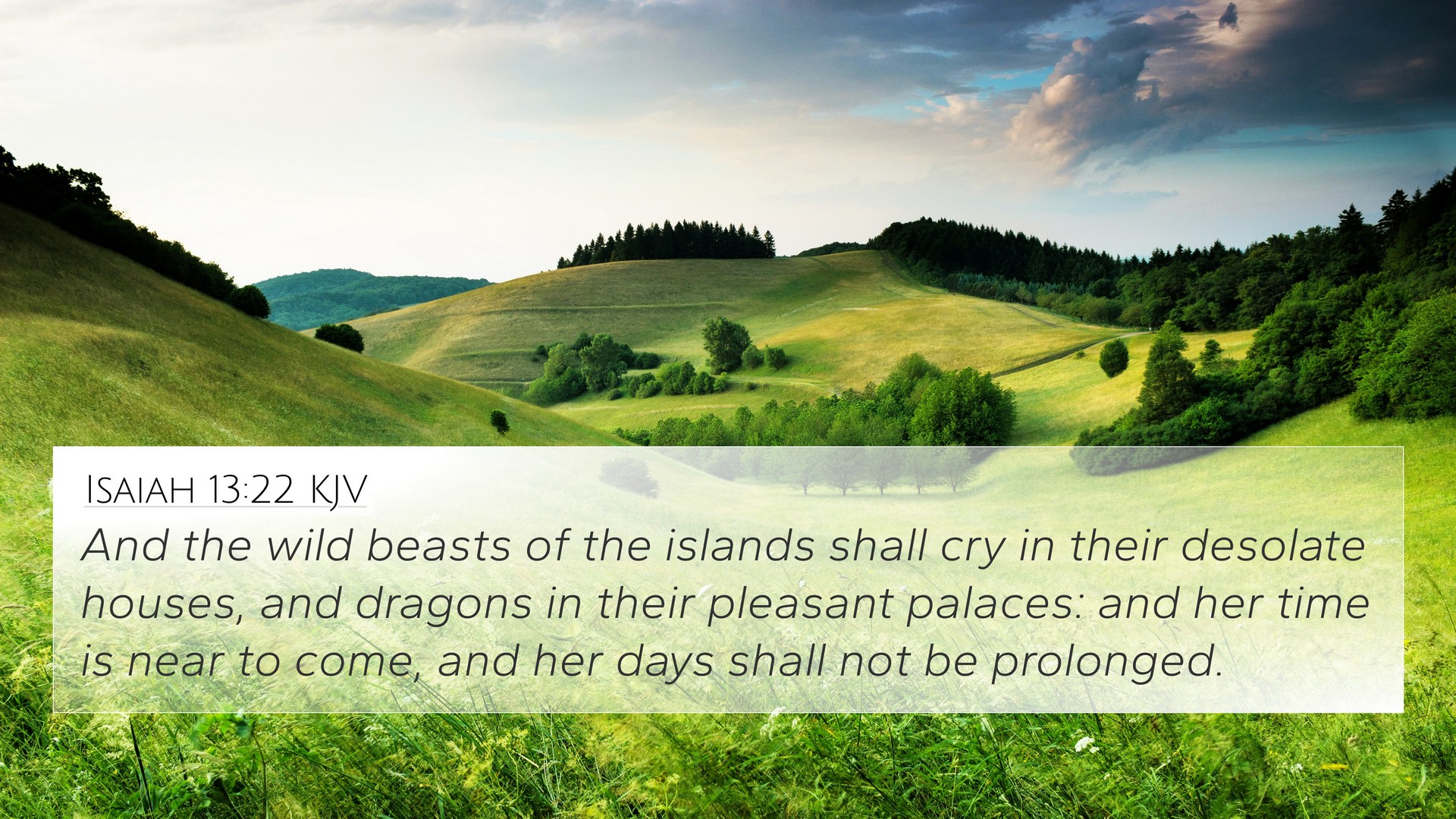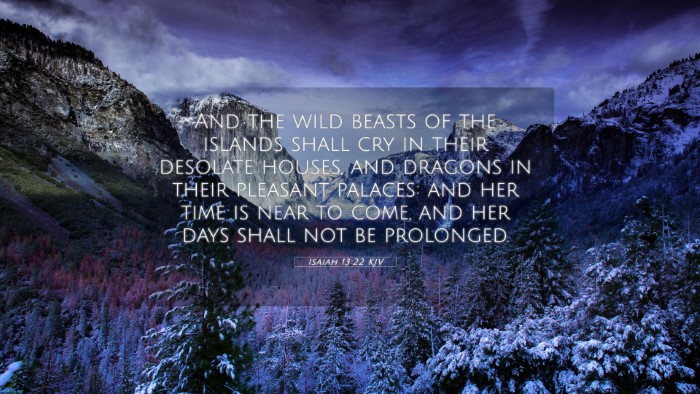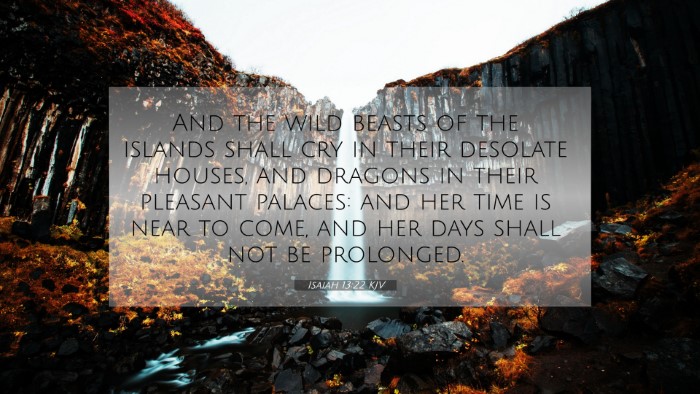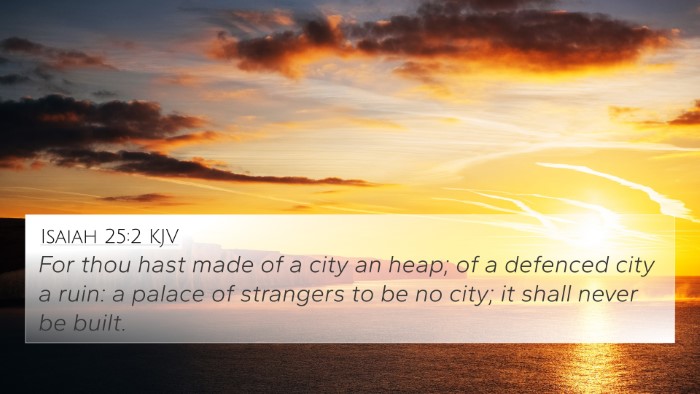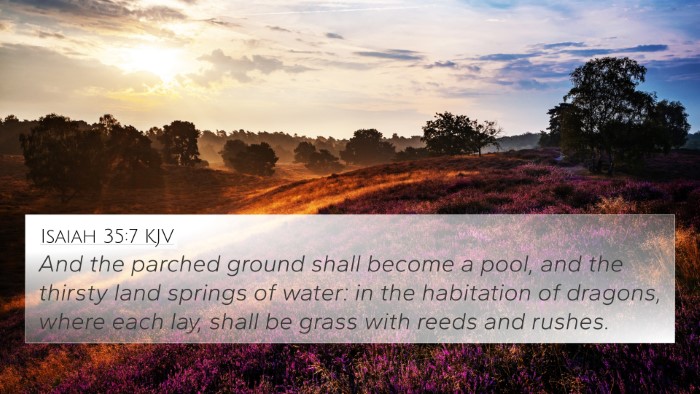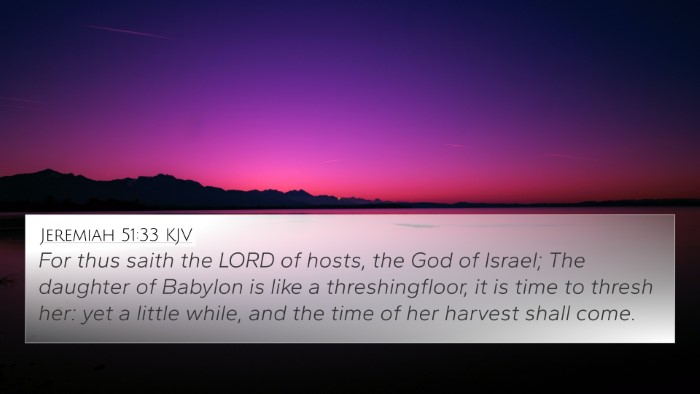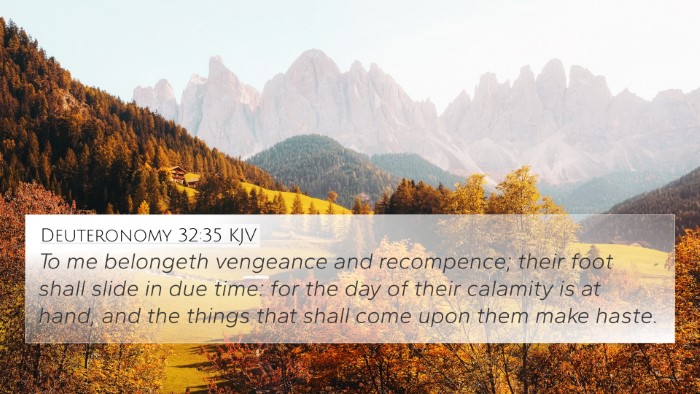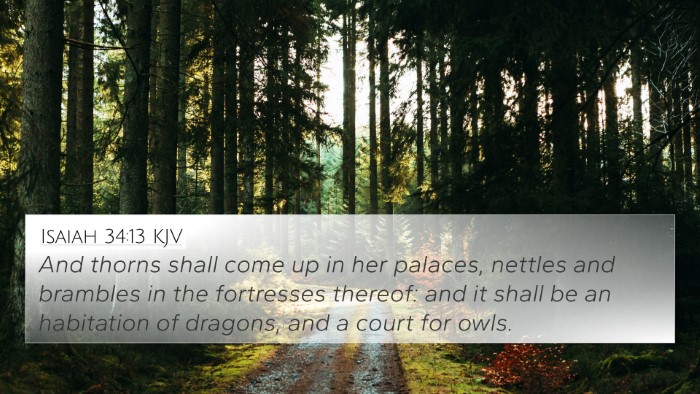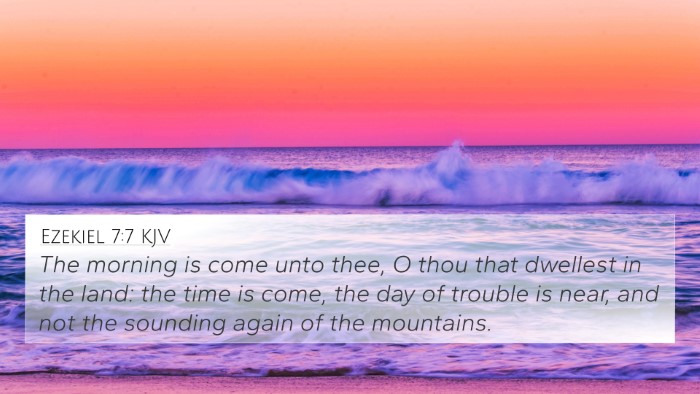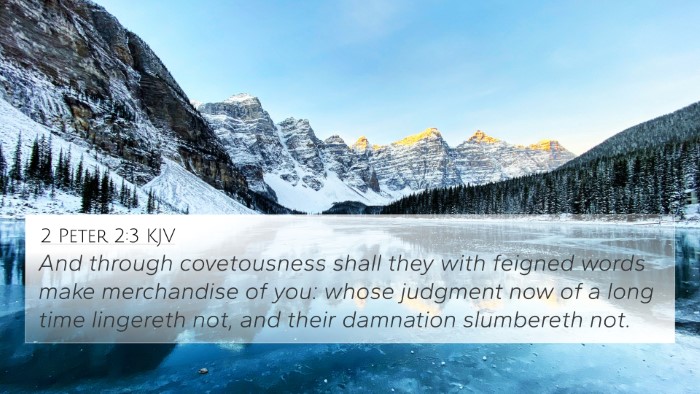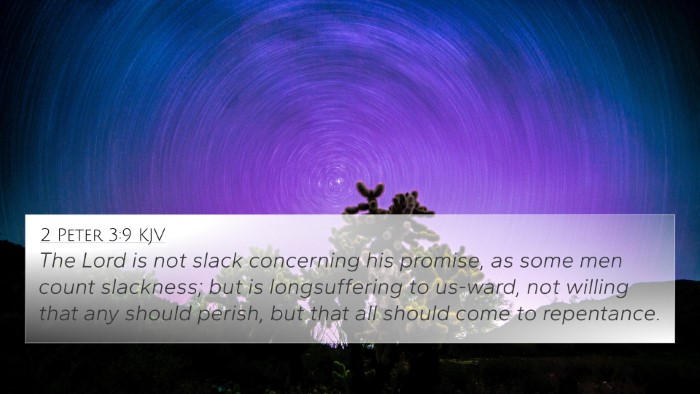Meaning and Interpretation of Isaiah 13:22
Isaiah 13:22 states, "And wild beasts of the island shall cry in their desolate houses, and dragons in their pleasant palaces: and her time is near to come, and her days shall not be prolonged."
Overview
This verse provides a stark prophetic vision regarding the fate of Babylon, illustrating the devastating consequences of its impending downfall. Both the desolation of the land and the cries of wild animals serve as imagery to convey that the once-thriving city will become abandoned and uninhabitable.
Commentary Insights
- Matthew Henry: Henry notes that the prophecy of Babylon's desolation is indicative of God’s judgment. The wild beasts' lamentation is a metaphor for the absence of human life and prosperity, emphasizing the city’s fate.
- Albert Barnes: Barnes interprets the "dragons" as symbolizing the complete ruin of the city. He highlights the urgency in the verse — the time for judgment is imminent, reflecting the certainty of God’s decree against Babylon.
- Adam Clarke: Clarke points out that the verse uses vivid imagery of beasts crying out in desolation, signifying a total abandonment. The mention of “pleasant palaces” being turned into desolate houses illustrates the irony of once-grand houses now left to decay.
Bible Verse Cross-References
Understanding Isaiah 13:22 is enriched through connections with other Scriptures. Here are significant cross-references:
- Jeremiah 50:3: Discusses the downfall of Babylon and its impact on the surrounding nations.
- Revelation 18:2: Symbolizes the fall of Babylon, relating back to Isaiah's prophecies.
- Isaiah 14:23: Also prophesies Babylon's desolation, reinforcing the themes found in Isaiah 13.
- Zephaniah 2:13-15: Provides a picture of desolation similar to Isaiah’s description, signaling God’s sovereignty in judgment.
- Psalm 137:8-9: Reflects on the sorrow associated with the fall of Babylon.
- Lamentations 2:15-16: Highlights the disgrace and mockery faced by a fallen city.
- Micah 1:10-12: Uses similar imagery of desolation, illustrating a broader prophetic tradition.
Connections Between Bible Verses
Isaiah 13:22 serves as a critical point of inter-biblical dialogue reflecting God's judgment. By cross-referencing these scriptures, readers can enhance their understanding of themes of divine retribution, the consequences of human arrogance, and the inevitable downfall of unrepentant cities.
Tools for Bible Cross-Referencing
Utilizing effective tools for Bible cross-referencing can deepen your study:
- Bible Concordance: A helpful resource to look up words and find related scriptures.
- Bible Cross-Reference Guide: Provides insights on direct connections between verses.
- Cross-Reference Bible Study: Methods to systematically explore scripture themes and connections.
- Bible Reference Resources: Useful for understanding the context of various verses.
- Bible Chain References: A method to connect scriptures through thematic links.
Comparative Bible Verse Analysis
When engaging in comparative analysis of Isaiah 13:22, consider how prophetic literature not only predicts future events but also parallels other suffering indictments found throughout scripture. This verse resonates with similar themes of judgement found in both Old and New Testaments, demonstrating a continuous narrative around God’s justice.
How to Use Bible Cross-References
To discover thematic links and narratives in the Bible, follow these basic steps:
- Identify Keywords: Focus on keywords in Isaiah 13:22 like "desolate," "palaces," and "wild beasts."
- Utilize a Concordance: Look up these keywords in a concordance to find relevant cross-references.
- Compare Texts: Examine the context and themes of each cross-referenced verse.
- Document Insights: Note down how the verses connect and what new insights arise.
- Reflect Theologically: Consider how these connections deepen one's theological understanding of God's character.
Summary
Isaiah 13:22 serves as a powerful reminder of God’s impending judgment upon Babel due to its pride and iniquity. Through wild animals signifying abandonment and desolation, the verse highlights a spiritual truth: towns and nations that turn from God ultimately face His righteous justice. By examining related verses and utilizing cross-referencing tools, readers can discern the rich, interconnected fabric of biblical prophecy and divine revelation.
